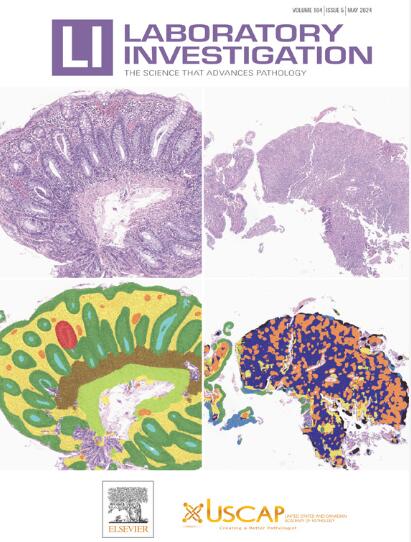Analysis of Human Epidermal Growth Factor Receptor 2 (HER2) Heterogeneity at the Protein and Gene Levels in Endometrial Cancer: Refining HER2 Reporting and HER2-Directed Therapies
IF 4.2
2区 医学
Q1 MEDICINE, RESEARCH & EXPERIMENTAL
引用次数: 0
Abstract
Targeted therapy directed against human epidermal growth factor receptor 2 (HER2) has shown promising results in HER2-positive endometrial cancer. Recent limited data suggest significant intratumoral heterogeneity in HER2 expression in serous carcinomas. We aimed to evaluate HER2 heterogeneity at the protein and gene levels and the impact of variable definitions in endometrial carcinomas including nonserous subtypes. We retrospectively identified biopsies and surgical specimens with available HER2 immunohistochemical (IHC) stains and fluorescence in situ hybridization (FISH) results. IHC stains and FISH data were reevaluated to assess variability in the HER2 protein expression and gene amplification. The overall HER2-positivity rate was 31% using the endometrial criteria, and 42.6% by the gastric criteria. Heterogeneous IHC staining was observed in 45.7% of tumors, predominating in 2+/3+ scores (P < .001). Re-evaluation of FISH revealed a 31% rate of heterogeneous gene amplification. Our study demonstrates a high frequency of HER2 heterogeneity at both the protein and the gene levels. Further studies on HER2 heterogeneity and treatment response are warranted for refining standardized testing and reporting algorithms.
子宫内膜癌中HER2蛋白和基因水平异质性分析:改进HER2报告和HER2定向治疗。
针对人表皮生长因子受体2 (HER2)的靶向治疗在HER2阳性子宫内膜癌中显示出良好的效果。最近有限的数据表明,浆液性癌中HER2表达存在显著的瘤内异质性。我们旨在评估HER2在蛋白和基因水平上的异质性,以及包括非浆液亚型在内的子宫内膜癌中不同定义的影响。我们用可用的HER2免疫组化(IHC)染色和荧光原位杂交(FISH)结果对活检和手术标本进行回顾性鉴定。重新评估IHC染色和FISH数据,以评估HER2蛋白表达和基因扩增的变异性。子宫内膜标准her2总阳性率为31%,胃标准her2总阳性率为42.6%。45.7%的肿瘤存在异质免疫组化染色,以2+/3+评分为主(p
本文章由计算机程序翻译,如有差异,请以英文原文为准。
求助全文
约1分钟内获得全文
求助全文
来源期刊

Laboratory Investigation
医学-病理学
CiteScore
8.30
自引率
0.00%
发文量
125
审稿时长
2 months
期刊介绍:
Laboratory Investigation is an international journal owned by the United States and Canadian Academy of Pathology. Laboratory Investigation offers prompt publication of high-quality original research in all biomedical disciplines relating to the understanding of human disease and the application of new methods to the diagnosis of disease. Both human and experimental studies are welcome.
 求助内容:
求助内容: 应助结果提醒方式:
应助结果提醒方式:


